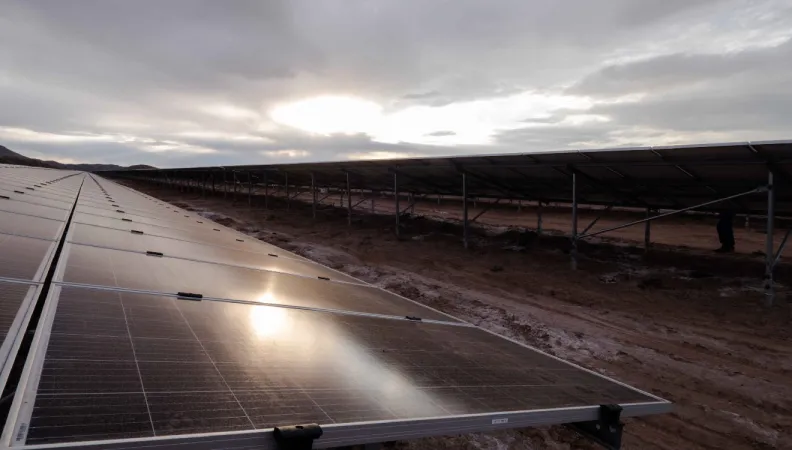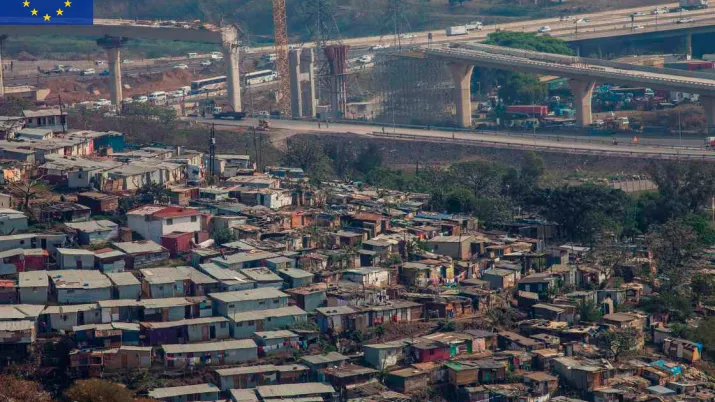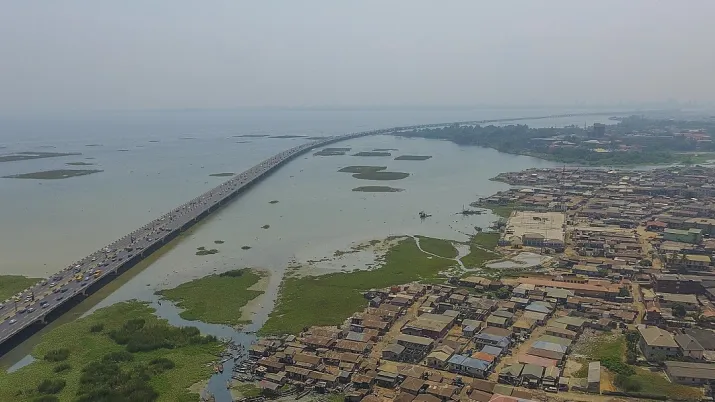Share the page
Realizing the potential of public development banks for achieving the Sustainable Development Goals

-
Project start date
-
2019Status
Completed
-
Project end date
-
2021
-
AFD financing amount
-
200000 €
-
Country and region
-
Location
-
Multi-country
-
Partners
-
Ford Foundation, Institute of New Structural Economics (INSE) at Peking University, International Development Finance Club (IDFC)
-
Research program
There are more than 500 Public Development Banks (PDBs) and Development Financing Institutions around the world. Spread over all continents, with varying sizes, geographies and areas of intervention, their usefulness is increasingly recognized by academics and policy makers. But while these banks are crucial for the financing and therefore the achievement, of Sustainable Development Goals (SDGs), their role, functioning and effectiveness remain overlooked, mostly due to a lack of data and research.
Context
Because they are government-supported, have an official mandate to carry out public policy objectives, and their combined assets amount to $11.2 trillion, PDBs represent important instruments to address market failures and promote a responsible and sustainable economy, aligned with the Sustainable Development Goals (SDGs).
Despite their current global renaissance, academic research on these institutions remains limited. This research program aims to fill this gap, and to better understand these key institutions, with the ambition of Realizing the Potential of Public Development Banks for Achieving Sustainable Development Goals.
Goal
The objective of this research program is to deliver concrete recommendations on how to scale up PDBs' potential at achieving the Sustainable Development Goals (SDGs) and supporting structural transformations towards a more responsible and sustainable global economy.
It focuses on three main actions:
Launched as part of the research program, the International Research Initiative on Public Development Banks (PDBs) brings together 28 researchers from 20 institutions around the world. The objective is to create an international community of academics and experts reflecting on the following research questions: What are the comparative advantages of PDBs in financing SDGs? How effective are these institutions in reaching SDGs?
Five open, thematically-focused working groups cover the key challenges exposed by the research program:
- The characterization of SDG-compatible investments
- Development Finance Institutions’ business models
- Development Finance Institutions’ governance
- The financial regulation of Development Finance Institutions
- The global development finance architecture
A serie of research papers have been published under this program. They are available below.
Who are the development banks, what are their characteristics and mandate? What assets do they mobilize, and what is their weight in the global financial market? Based on their annual reports, the database on Public Development Banks (PDBs) developed by the research program provides, for the first time, a comprehensive mapping of development banks worldwide. An analysis work using this data served to establish a typology of these institutions.
Simultaneously, AFD is working on two algorithms. The first aims to computerize the search for financial data; the second, based on an algorithm created in partnership by AFD and the SDG Financing Lab of OECD, will make it possible to highlight the way in which ODDs are taken into account by development banks.
The main objective of this research program is to deliver concrete recommendations for decision-makers. First results have been shared with all stakeholders during the 14th AFD International Research Conference on Development, The Visible Hand: Development Banks in Transition in the framework of the Finance in Common Summit, the first global meeting of all public development banks held in November 2020.
The researchers involved in this program come from the following institutions :
National Scientific and Technical Research Council, Argentina (Argentina); Institute of New Structural Economics, Peking University (China); School of International and Public Affairs (SIPA), Columbia University (USA); Development Bank of Minas Gerais, BDMG (Brazil); Columbia University (UK); UNDESA (United Nations-Department of Economic and Social Affairs, USA); Institute of Development Studies (UK); LSE (UK); Ferdi - Fondation pour les Etudes et Recherches sur le Développement International (France); Overseas Development Institute (ODI Sales Ltd., UK); Boston University’s Frederick S. Pardee School of Global Studies (USA); Green Climate Fund (USA); Institute for Sustainable Development and International Relations (IDDRI, France); United Nations Conference on Trade and Development (Switzerland); BNDES (O banco nacional do desenvolvimento/The Brazilian Development Bank, Brazil); Toulouse School of Economics (France); National School of Development, Peking University (China); Agence française de développement (AFD, France).
Results
All the working papers published under this research program, listed below, are available for free downloading. For each research paper, you can also read a overview in two pages, and watch a short video.
Overview
- 10 policy recommendations for decision makers on Public Development Banks, Stephany Griffith-Jones (iPD, Columbia University), Régis Marodon (AFD), Jiajun Xu (INSE, Peking University) (This general synthesis of the whole research results will soon be available)
- Can development banks step up to the challenge of sustainable development? Régis Marodon (Agence française de développement, AFD)
Have a look on the key findings
See the video pitch
Inclusion of Development Banks in the Global Financial Architecture
- Exchange Rate and Balance of payment risks in the Global Development Finance Architecture, Alfredo Curutchet Schclarek (National Scientific and Technical Research Council, Argentina); Jiajun Xu (INSE)
Have a look on the key findings
See the video pitch
- The Global Development Banks’ Architecture, José Antonio Ocampo (School of International and Public Affairs, SIPA, Columbia University)
Have a look on the key findings
See the video pitch
- From global to local: subnational development banks in the era of Sustainable Development Goals, Sergio Gusmão Suchodolski (Development Bank of Minas Gerais, BDMG); Adauto Modesto Junior (BDMG); Cinthia Helena de Oliveira Bechelaine (BDMG)
Have a look on the key findings
See the video pitch
Business Model of Development Banks
- Matching Risks with Instruments in Development Banks, Stephany Griffith-Jones (Columbia University); Shari Spiegel (United Nations-Department of Economic and Social Affairs, UNDESA); Jiajun Xu (INSE); Marco Carreras (Institute of Development Studies, IDS); Natalya Naqvi (The London School of Economics and Political Science, LSE)
Have a look on the key findings
See the video pitch - The allocation of resources of National Development Banks: Does it fit development goals? Laurent Wagner (Foundation for Studies and Research on International Development, FERDI)
Have a look on the key findings
See the video pitch - Effective Development Banking: Loans or Guarantees?, Eduardo Fernández-Arias (Visiting Research Fellow, Peking University); Jiajun Xu (INSE)
Have a look on the key findings
See the video pitch
Characterization of SDG-compatible investments
- Piloting and Scaling Up Clean Energy Transitions: The Role of Development Finance Institutions, Samantha Attridge (ODI); Jiajun Xu (Institute of New Structural Economics, Peking University, INSE); Kevin Gallagher (Boston University)
Have a look on the key findings
See the video pitch - Climate Change and Development Bank Project Cycles, Harvey Himberg (Green Climate Fund); Kevin Gallagher (Boston University); Jiajun Xu (INSE)
Have a look on the key findings
See the video pitch - Scaling up public Development Banks’ transformative alignment with the 2030 Agenda, Maria Alejandra Riaño (Institute for Sustainable Development and International Relations, IDDRI); Jihane Boutaybi (IDDRI); Damien Barchiche (IDDRI); Sébastien Treyer (IDDRI)
Have a look on the key findings
See the video pitch
Regulatory frameworks
- Financial regulation of National Development Banks, Ricardo Gottschalk (United Nations Conference on Trade and Development); Lavinia Barros (The Brazilian Development Bank, BNDES); Jiajun Xu (INSE)
Have a look on the key findings
See the video pitch - Carbon Policies and Climate Financial Regulation, Ulrich Hege (Toulouse School of Economics, TSE); Frédéric Cherbonnier (TSE)
Have a look on the key findings
See the video pitch
Governance
- Financial performance and Corporate Governance: Evidence from National Development Banks in Africa, Samantha Attridge, Yunnan Chen, Michael Mbate (ODI)
Have a look on the key findings
See the video pitch - Checks and balance, Political Leadership, and Bureaucratic Autonomy: Evidence from National Development Banks, Tianyang Xi (National School of Development, Peking University, PKU); Jiajun Xu (INSE)
Have a look on the key findings
See the video pitch
PDB Database Building Flagship Reports
- Identifying and Classifying PDBs and DFIs, Jiajun Xu, Régis Marodon, Xinshun Ru
See the video pitch - Funding Sources of National Development Banks, Jiajun Xu, Kedi Wang, Xinshun Ru
Have a look on the key findings
See the video pitch
Contacts
- Jiajun Xu, Executive Deputy Dean at the Institute of New Structural Economics (INSE) at Peking University
- Stephany Griffith-Jones, Financial Markets Director at Columbia University (England)
- Régis Marodon, Special Adviser on Sustainable Finance at the Agence française de développement (AFD)



